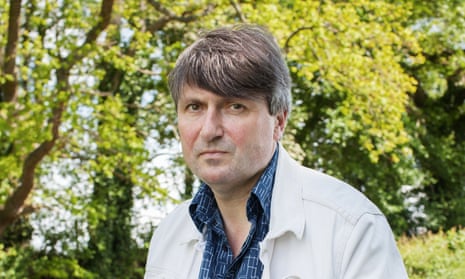Poet laureate Simon Armitage is to use his laureate’s honorarium to create a new poetry prize for environmentally themed poetry, describing the climate crisis as a “background hum that won’t go away” when he is writing. The Laurel prize, which will be run by Poetry School, will go to the best collection of poems “with nature and the environment at their heart”, with the aim of highlighting “the challenges facing our planet”. The first prize, which will be awarded on 23 May 2020 at the Yorkshire Sculpture Park, will be judged by Armitage, nature writer Robert Macfarlane and the poet Moniza Alvi.
“It’s come about because of the obvious environmental concerns, and in recognition of this growing body of work in poetry addressing climate change and the climate crisis, sometimes directly and sometimes more indirectly,” says Armitage. “It needs more awareness around it. I also think that offering a prize might encourage more of this sort of writing.”
He points to the boom in non-fiction nature writing, by authors such as Macfarlane and Tim Dee, but says a similar flourishing has “slightly gone unheralded in poetry”, despite the work of Alice Oswald, Paul Farley, Kathleen Jamie, John Burnside, Pascale Petit and others. “I’m not saying that everything they write is pointing in that direction, but it’s a strong element to their work,” says Armitage. “And you can’t write poems about the natural world now unless it’s in an environmental context. Every word you write on that subject sort of quakes with the background predicament.
“Ted Hughes was often seen as being unfashionable for his nature writing and it was something he doggedly persevered with, to the point where he was a campaigner as well at low levels. It’s interesting to me that poetry has been able to swing back in the direction of nature; it didn’t fit in with a lot of the psychologies of the 60s and 70s and 80s, it wasn’t metropolitan, and maybe attached itself to the Romantics – Wordworth and Coleridge and particularly John Clare. Now nature has very much come back into the centre of what poetry can, and should, be dealing with.”
The Laurel will come with a first prize of £5,000, a second prize of £2,000 and a third prize of £1,000, and will run for “at least” the decade that Armitage is laureate, says Poetry School, which also organises the Ginkgo prize for the best single ecopoem. In its first year, it will consider the last five years of collections, with subsequent prizes restricted to the previous 12 months.
“Even though poetry is not always good at meeting mainstream politics head on, it can provide a real focus point for people who have strong beliefs and want a package of language to get behind or to represent them,” says Armitage. “I’m always interested in excellence as well. The subject matter isn’t the be all and end all, I’m interested in the quality of writing that comes with it.”
Armitage himself recently wrote a poem to mark the naming of the UK’s new polar research ship, as well as the poem printed here, which addresses the climate crisis. “I’ve always written poems about the area where I live, and my interests in things like the Antarctic and the Arctic and geography generally, all those subject matters are shaded now by the environmental situation,” he says. “It’s not all I write about, but I write about it more and more consciously.”
An exclusive new poem by Simon Armitage
so the peloton passed
like a line from a poem
across the eye,
millipede legs
scuttling for Holme Moss |
we trod in its slipstream,
authorised trespass,
the main road
cordoned-off
to petrol and piston,
the tarmac kindly and warm
to our bare feet,
an asphalt fairway
vaulted by sycamore, rowan, beech,
woods to both sides
reinstated as woods |
when a thought approached
in the form of a child
tightrope-walking the white lines
between cats’ eyes | she said:
If I breathed the word
that disappeared all people
in the world,
leaving the world
to the world, would you
say it? Would you
sing it out loud?
